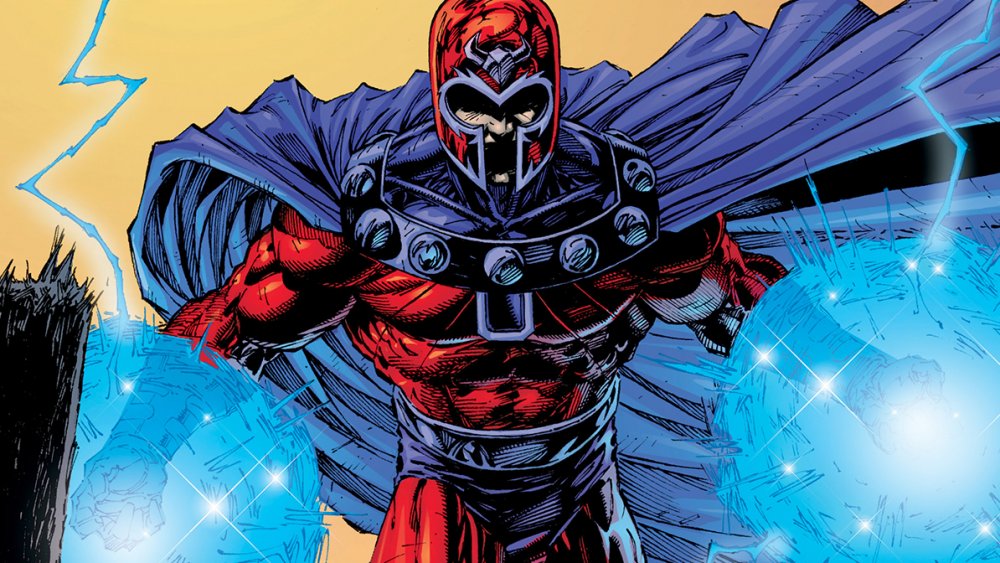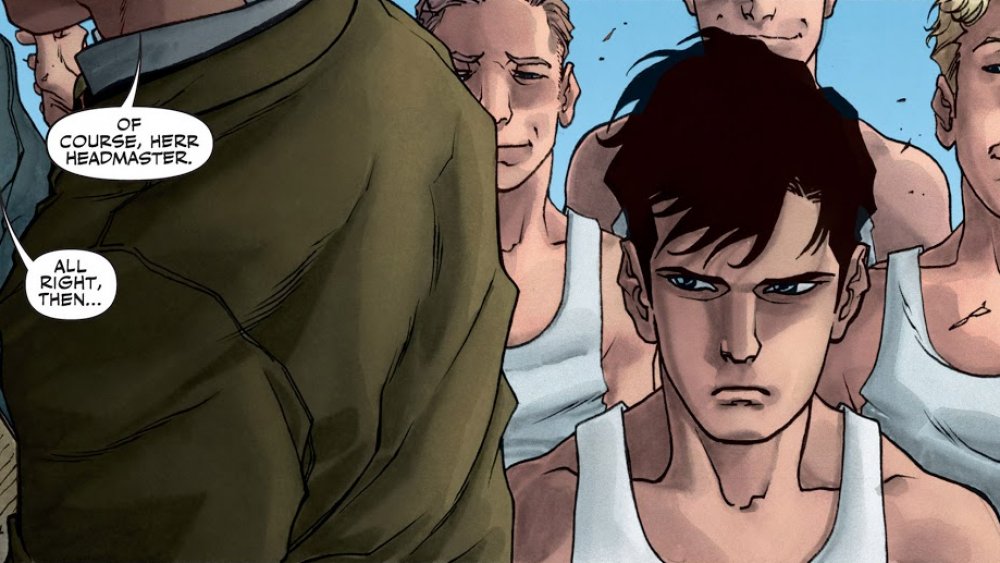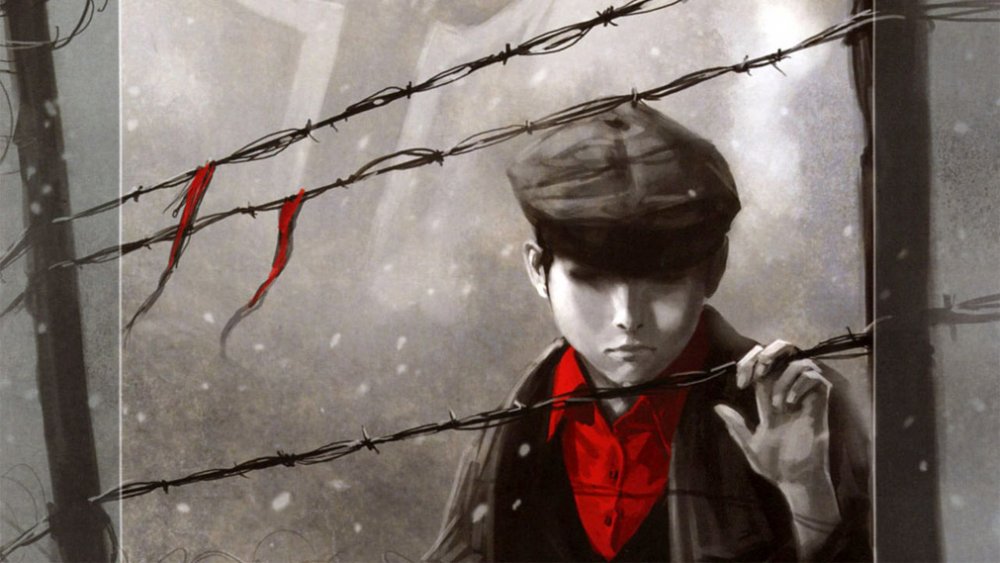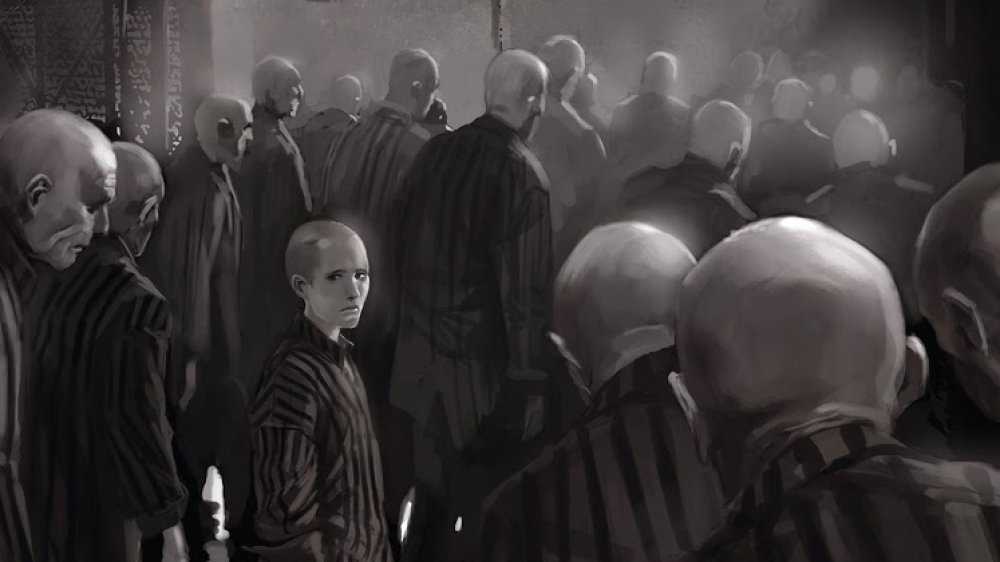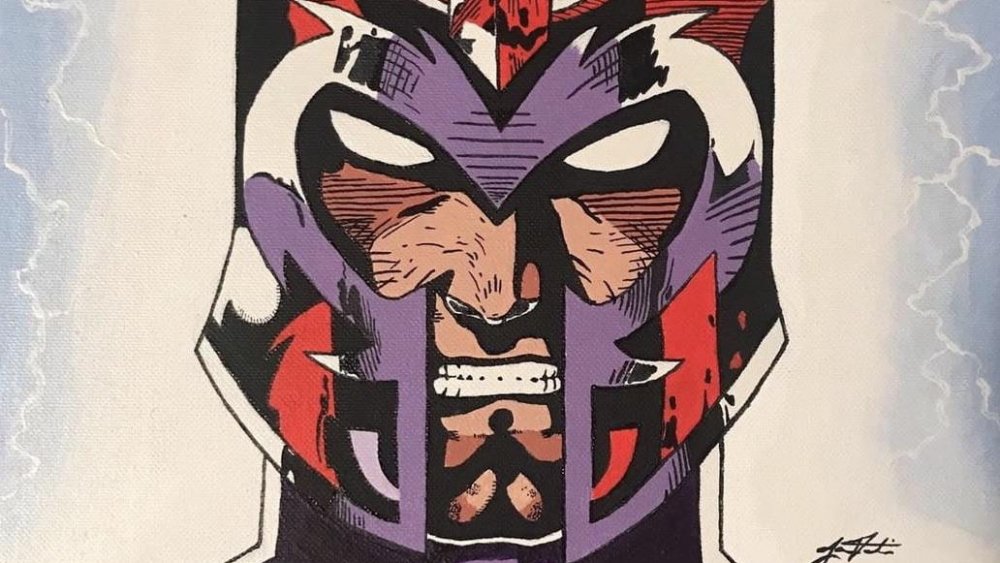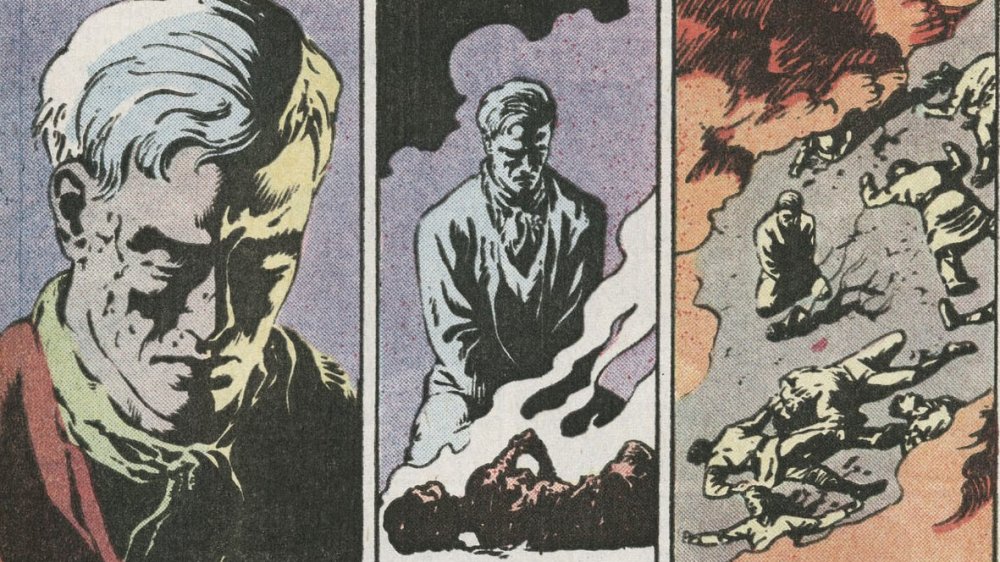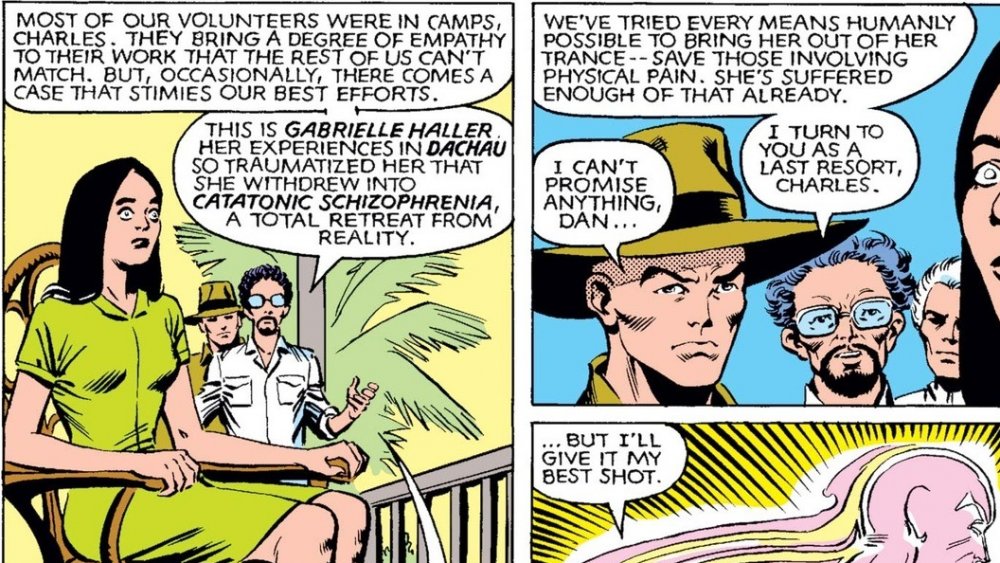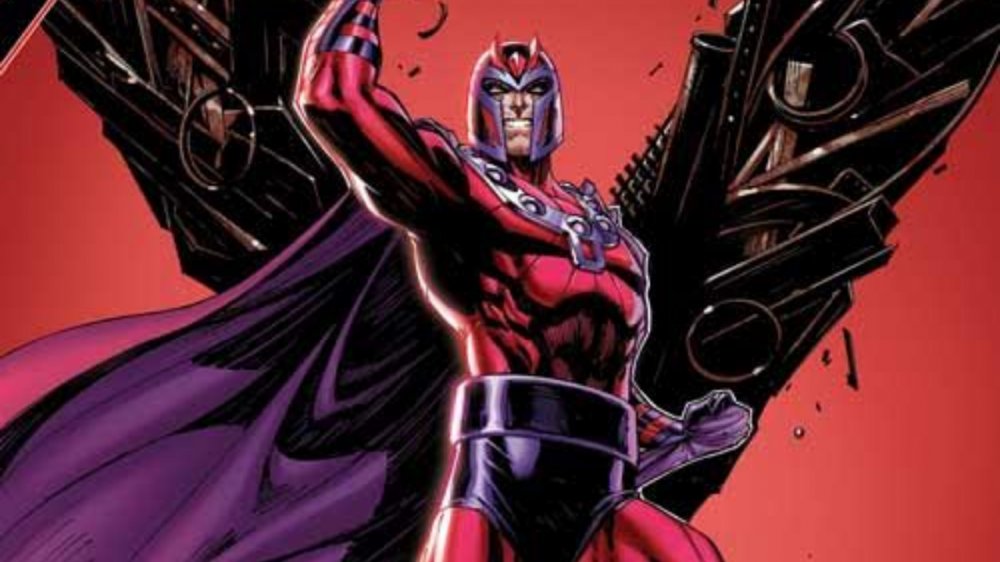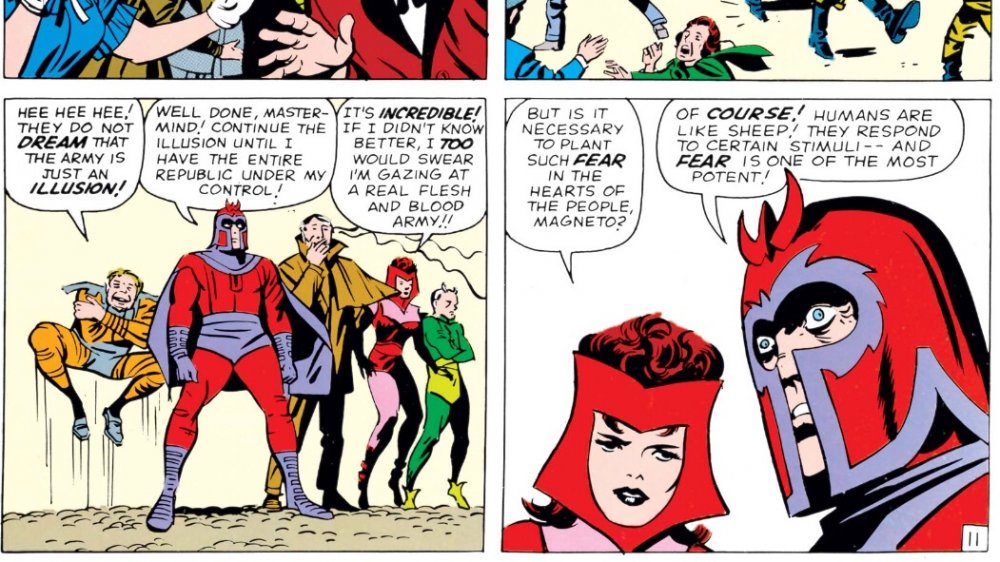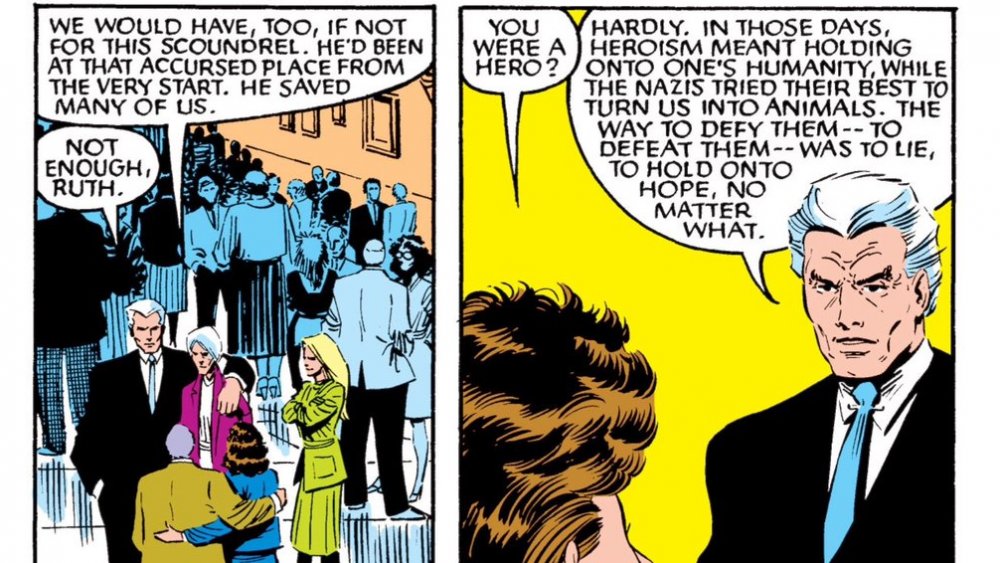Magneto's Entire Backstory Explained
Decades of X-Men stories have developed two distinct views on bringing about a better world for Marvel's maligned mutants. Our heroes and protagonists typically follow the example of Charles Xavier, a believer in non-violence who hopes that humans will come around to the idea of mutants if they see the good that mutant individuals can do.
This worldview is generally pitted against Magneto's, a villain who believes that mutant liberation can only come via violent overthrow of the world built by humans. Sharp writing is essential to making this conflict work: A reader has to believe that these two men could come to wildly different conclusions about the co-existence of humans and mutants. When it works, it is spectacular. Magneto, when properly written, is a truly terrifying villain — yet one you completely understand, and even sympathize with.
Luckily for fans of the X-Men, decades of writers have put in the work to make Magneto's belief in a mutant uprising entirely plausible. The tragic story of Magneto's life not only makes him a powerful villain — it enriches the story of Marvel's mutants as a whole. This is his story — the long, brutal struggle of one man committed to leaving the world better than he found it, no matter the cost.
The Eisenhardts of Germany
The boy who would become Magneto was born Max Eisenhardt, sometime in the late 1920s, to a middle-class German Jewish family. His father, Jakob, was a decorated veteran of World War I. Max was a happy boy, much beloved by his parents and nursing a crush on Magda, a Romani girl who worked alongside her mother, cleaning his school.
Though the Eisenhardts lived in relative comfort, bigotry was ever-present in their lives. While Max's mother was quick to voice concerns over the nation's rising tide of antisemitism, Jakob downplayed all anxiety. He had served in the German army, after all — how could the nation forsake him after such a test of loyalty and honor? At school, however, Max could not ignore the rise of the Nazis and their noxious ideology. Teachers and classmates had begun to single him out for shame and abuse, reducing his intellectual achievements to "degenerate cunning" and outright cheating. The Eisenhardts lives were precarious, and about to be upended entirely.
Persecution
Anyone who knows their history can probably guess what happened next. Nazi Germany rose to power on a tide of violence and oppression, and the Eisenhardts found themselves stripped of their rights, jobs, home, and freedoms. Max's uncle was publicly beaten for "shaming a German woman," Jakob's army service was ignored by every authority he attempted to appeal to, and Magda and her mother disappeared from Max's school without a word. After enduring Kristallnacht, the Eisenhardts fled to Poland — only to encounter the Nazis, already there in force. The family was forced into the Warsaw Ghetto, from which they escaped, just before the Ghetto's famous uprising. But the woman on the outside who had promised to spirit them to freedom betrayed them after her mother was taken hostage. The Eisenhardts — Max, his parents, and his little sister — were lined up and executed, falling into a mass grave.
In the world of the X-Men, mutant powers tend to manifest around the time of puberty, often when the teen in question is put into a position of extreme stress. This is how Max survived while the rest of his family perished: Max's powers of magnetism manifested as the Nazi's bullet sped towards him. After the soldiers left, he climbed out of the grave — and into a world in which he was suddenly, devastatingly alone.
Life in captivity
Max's freedom was short-lived. He was captured yet again and taken to Auschwitz, one of several concentration camps the Nazis built in occupied Poland. Max was forced to work as a Sonderkommando, a member of a work gang that had to dispose of the bodies of people killed in the camp's gas chambers. As the years went by, Max grew more and more hollow, and less inclined to believe in saviors.
Max found some small solace in a reunion inside the camp, however. He found Magda, the girl who had worked at his school, and quietly began to foment revolution with his fellow prisoners. When wary men protested, saying that an uprising would cause brutal Nazi retaliation, Max calmly laid out all the times he had followed those lines of thinking. He'd had many opportunities to fight back, he said, against the perpetrators of Kristallnacht, bigoted authority figures, and officials within the camp. He hadn't taken them, out of fear of the destruction the Nazis would rain upon the Jews as a result. "And guess what," hee asked his skeptical bunkmates: "They killed them all anyway."
As in our world, the Sonderkommandos revolted on October 7, 1944. In the ensuring chaos, Max and Magda escaped into the Polish countryside.
The good life?
Magda and Max escaped into the Carpathian mountains of Eastern Europe under assumed names. They became the Magnus family, and had a daughter named Anya. But Max began to bristle against their quiet life — he'd grown up in the city, and the slow pace of rural life was stultifying. Max also wanted to move to a busier place in order to find work as a carpenter and possibly attend college. Against Magda's wishes, they moved to the Soviet city of Vinnytsia.
His first day in the city brought tragedy. After settling his family down at an inn, Max found work on a construction site. The foreman took note of Max's precarious living situation and lack of connections in the city and attempted to cheat him out of his day's pay. In a fit of rage, Max's magnetic powers resurfaced, and he launched a crowbar at the foreman's head.
Another formative tragedy
Max ran from the job site back to the inn — and found, to his horror, that it was on fire, with his young daughter inside. Max realized that he could use his powers to create a protective shield around himself and Magda, and he set about attempting to save Anya from the burning building. However, he was stopped by police who had been called by the foreman. A mob formed and subdued Max as he tried to break free and pull his daughter from the flames. They did not release him until Anya's body fell from the building and landed in front of the crowd.
Losing control of his powers, Max sent out a powerful electromagnetic pulse that killed several policemen and bystanders. Magda was shocked by her husband's destructive powers and corrosive anger — she called him a monster and fled into the night. Max escaped the city and buried Anya's body in the woods. He assumed another new identity, taking on the mantle of the Sinti Romani Erik Magnus Lehnsherr, in order to avoid authorities and search for Magda.
Meeting Charles Xavier
As Erik Lehnsherr, Magneto traveled to the newly founded nation of Israel. It was here that he met a young Charles Xavier, when the both of them were working at a mental hospital. They bonded while caring for a catatonic patient named Gabrielle Haller, arguing as they did about the place that mutants held in the world. Neither man revealed that they had mutant powers, but they staked out their positions of mutant superiority and coexistence and held fast to them.
Yet another extremely stressful situation forced them to reveal their powers, when an evil organization called HYDRA led by a Nazi named Baron Strucker came to abduct Haller. The location of a cache of ill-gotten Nazi gold had been implanted in Haller's memory, as it turned out. Charles and Erik had to use their hidden abilities to save Haller. Shortly after they teamed up for a rescue mission, Erik realized that he could not settle his and Charles' differences of opinion on the future of mutants and he set out on his own.
Becoming Magneto
Charles Xavier and Erik Lehnsherr were products of their environment. Xavier had a relatively untroubled life, growing up in an upper-crust home in the United States. He was allowed to come into his mutant powers gradually, surrounded by comfort, and with the tacit approval of the people around him. On the other hand, Lehnsherr's entire life had been an education on the extreme cruelty that people can unleash on those they perceive as different. His heritage led to his entire family being killed. Every time he had revealed his powers to humans, he had been chased out of town. He simply couldn't fathom's Charles' view of mutant and human harmony.
Erik's time as a Sonderkommando made him entirely aware of the source of Nazi gold stashes, of the kind secreted away in Haller's memory. He had, as part of his work, learned to strip gold out of the teeth of murdered Jewish people, for the benefit of the Nazis. It stood to reason that he should use the stolen gold to prevent anything like that genocide from happening again, this time to mutantkind. He took off with the gold HYDRA coveted, and used it to fund his plan for peace: Mutant world domination.
A home for mutants
Initially, Magneto set up a base of operations off-world. Asteroid M became a home for disillusioned mutants who believed in Magneto's cause. He pitched his plans for a world ruled by mutants – homo superior, as he called them — and found a receptive audience in people who had been persecuted for their in-born powers. His Brotherhood of Evil Mutants carried out attacks on military bases and other installations in the hopes of starting the overthrow of the human order. He was always beaten back, however, by Xavier's dogged team of X-Men.
Given the themes of bigotry and the fight for civil rights at the heart of the X-Men, it didn't take long for the series to take on the idea of separatism. Magneto attempted to take over the fictional country of Santo Marco, creating a protected mutant homeland. He succeeded in taking the country over, but couldn't hold it against an X-Men-led attack. He booby trapped the country with nuclear weapons, in the hopes of wiping out his only opposition. Because it was only the fourth issue, he failed. But it wasn't the last time he would attempt to put his dream of a mutant homeland into progress.
Testing convictions
Magneto hasn't ever held firm to his belief in all-out mutant supremacy for long. The new wave of 1980s X-Men writers, with their love of subverting comics tropes and deepening character history, didn't leave the Big Bad of X-Men untouched. Magneto first began to question his convictions when he nearly killed Kitty Pryde in a fight with the X-Men. As Pryde is a young Jewish woman, it made Magneto question exactly how far he would be willing to go to assure peace for mutants. He's wavered on his hard-line stance several times since, at one point even taking on the role of headmaster at Charles Xavier's school. He might have led the Brotherhood of Evil Mutants, but he just can't seem to stay evil himself.
But each new group of writers needs to play with the contrast between Charles' peaceful vision of coexistence and Magneto's militancy, of course. So Magneto regularly finds himself donning the helmet and heading off to plot ever more attacks on humanity.
